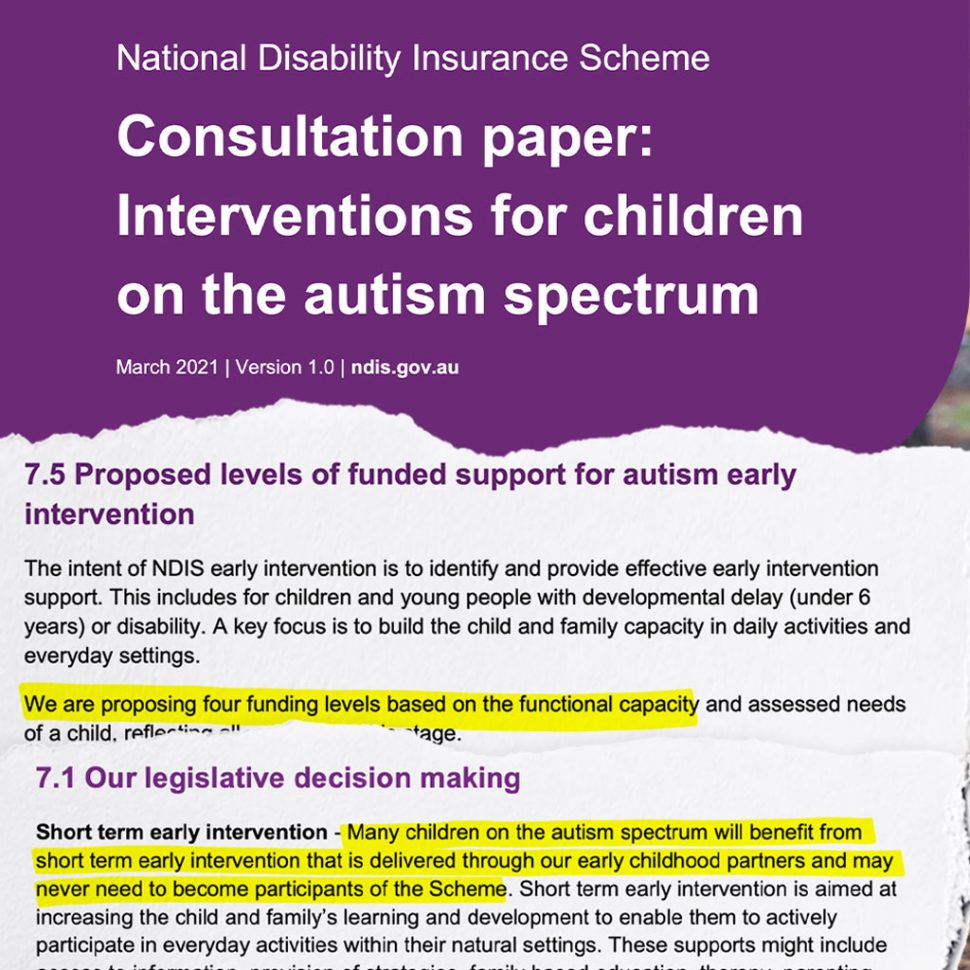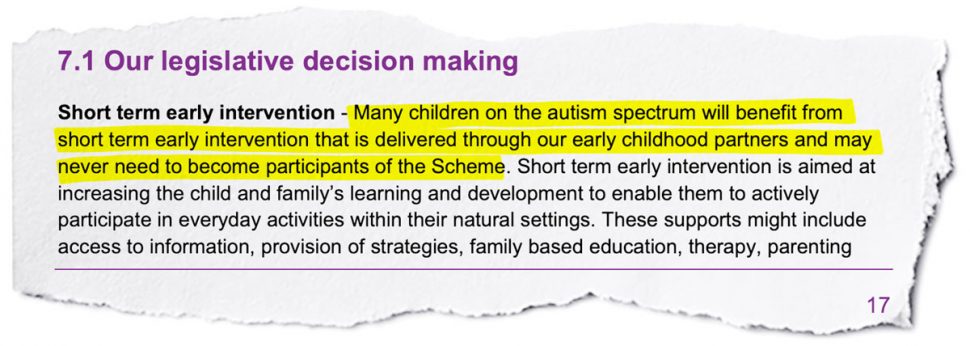NDIS Autism consultations are “futile and frustrating” – this new consultation is a case in point

My personal process of engaging with the NDIA over proposed reform has been one of frustration and futility.
The latest ‘Consultation’ paper released by the Agency is a case in point. It is confusing, vague and makes some alarming assertions about autism and the lives of Autistic people.
Of concern to me is the following motherhood statement:

Making this assertion shows a lack of understanding of autism. According to the government’s own health website autism is a lifelong condition caused by differences in the way the brain develops. Some Autistic people can live independently and engage in education and employment, and form lasting relationships with mainstream supports in place.
It is impossible to determine whether a child will have this level of success after 12 months of early intervention, however, this is what the Agency proposes. To assert that a young child will ‘never’ need the support of the NDIS does not take into consideration the many factors at play in an Autistic child’s life.
Firstly, autism rarely travels alone. Common comorbidities include intellectual impairment, language disorder, ADHD, depression and anxiety, OCD, epilepsy and eating disorder. There is an interaction between these conditions that increases the likelihood of functional impairment for most Autistic people.
Secondly, there are points across the lifespan that increase stress for Autistic people. These are common life events like starting school, changing schools, adolescence, finding and keeping a job, moving out of home, forming relationships and aging. With each of these life events reduced functional capacity is common and needs can not always be met by mainstream supports.
Thirdly, our education, employment and healthcare systems are not robust enough and not equipped to accommodate Autistic people. Until there is major reform in these areas Autistic people will need specialised supports. The NDIA can (as they propose to do) push back on these systems but at present it would be to the detriment of Autistic people as the stress of dealing with systems that do not accommodate causes greater levels of functional impairment.
Outcomes for Autistic adults are overly concerning with an employment rate of only 40%, poorer health outcomes, suicidality, and a life expectancy of 35 years of age due to multiple intersecting factors.
The idea that children can travel on an unsupported trajectory into adulthood after early intervention delivered from the confusing base of supports articulated by the Agency is deeply flawed.
The Autism CRCs report into early intervention draws very few reliable conclusions. This is not due to the work of the CRC but the lack of investment in research that is of a standard that we would expect for any condition that causes impairment.
The autism industrial complex is marred by commercial interest, pseudoscientific endeavour and fails to put Autistic people and their families at the centre. This why we end up with a set of principles and a varied grab bag of ‘interventions’ that demonstrate low to moderate success.
We cannot support a system of flawed ‘independent’ assessments leading to defined supports based on confusing science and an understanding of autism that does not take into consideration the multiple personal and systemic barriers facing Autistic people.
The Independent assessment process is fraught
It proposes that the best way to collect sensitive information is via strangers interfacing with vulnerable disabled people.
The independence of the assessors is highly questionable given what has been alleged regarding corporate conflicts of interest. The 10 years of experience of independent assessments in the UK has shown that it increases vulnerability sometimes leading to the death of disabled people through lack of support. The UK system of IAs is inaccurate with over 50% of IA decisions being overturned on appeal, and cost blowouts have seen $3.5 billion recently poured into IA providers who cannot meet basic quality requirements.
The proposed funding bands for Early Intervention mean that families will have to rely heavily on parent-mediated support which may be effective but very few parents are resourced to provide the structure and environment needed without additional formal support. A multidisciplinary approach to support is needed with parents as key investors in their child’s future but not as provider and coordinator of in-home support. This leads to burn out of Autistic people and their families – something I am supporting families of young adults with on a daily basis.
This will not alleviate the ‘postcode lottery’. Systemic disadvantage is a major factor in assessment and planning processes. Having educational and socioeconomic advantage leads to more effective engagement with systems. The proposed changes will not address systemic disadvantage.


Join the conversation